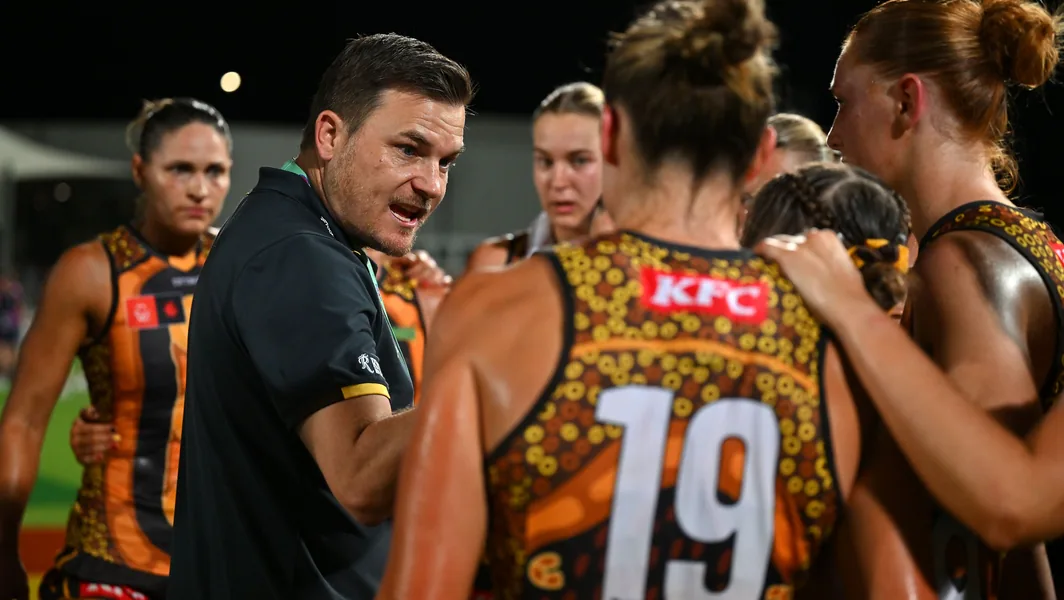In just one season, Daniel Webster has dramatically shifted the trajectory of the Hawthorn AFLW team, taking them from an expansion club with modest beginnings to a serious finals contender. Webster, who took over as head coach in February 2024, was clear from the start about his vision for the Hawks. Long before stepping foot inside the club’s headquarters, he had already mapped out a meticulous plan for the team, which included revamping their kicking techniques, restructuring their game plan, and reshaping their training sessions. His strategy was simple yet effective: focus on the fundamentals and instill a culture of improvement.
Webster’s approach to coaching is hands-on, and one of his first priorities was to refine his players’ kicking skills. During pre-season, he filmed players’ kicking techniques, breaking them down in subsequent sessions to ensure every player understood how to improve their precision, power, and accuracy. As a coach with over 15 years of experience, including stints at Brisbane’s AFLW program and Queensland’s state Academy, Webster knows that while improving players’ skills is essential, it’s equally important to provide them with the tools and knowledge to reach their potential. His focus on individual player development has been a key element in Hawthorn’s rise this year.
However, it wasn’t just the technical aspects of the game that Webster focused on; his broader vision for the team involved making significant changes to the playing style and lineup. From the outset, Webster wanted to create a more dynamic team, one that played with a stronger midfield, a more attacking backline, and a more potent forward setup. Key to this transformation was moving players into new positions to unlock their full potential. For example, midfielder Mattea Breed was repositioned to bring more physicality into the midfield, while Tilly Lucas-Rodd was shifted to a half-back role to provide more run from the backline. This new structure, coupled with the arrival of new recruits like Eliza West and Casey Sherriff, helped solidify Hawthorn’s position as one of the AFLW’s rising powers.
One of Webster’s most significant contributions to Hawthorn’s success, however, has been changing the team’s mentality. When he took over, the Hawks were still perceived as a young, developing team. But Webster wasted no time shifting this mindset, encouraging his players to believe in their ability to compete with the best. He recognized that constantly using the label of “inexperienced” as an excuse was holding the team back. Instead, he pushed the players to embrace their potential and challenged them to become a team that could match up with the AFLW’s top sides. The results speak for themselves—Hawthorn finished 2024 in the top two, with 10 wins from 11 games, a dramatic turnaround from their previous seasons.
As the team now prepares for its first-ever AFLW finals campaign, Webster’s transformative influence is clear. The Hawks are no longer considered underdogs but are firmly entrenched in the AFLW’s elite. With an attacking style of play, impressive player development, and a shift in mindset, they have become a force to be reckoned with. Although the competition’s top teams, such as Brisbane and Melbourne, will still present formidable challenges, Webster is confident that Hawthorn’s best football is good enough to compete for the ultimate prize. The question now is whether the Hawks can maintain their consistency and take their game to the next level in the finals. If they can, Webster’s vision might just propel them to their first-ever AFLW premiership.

